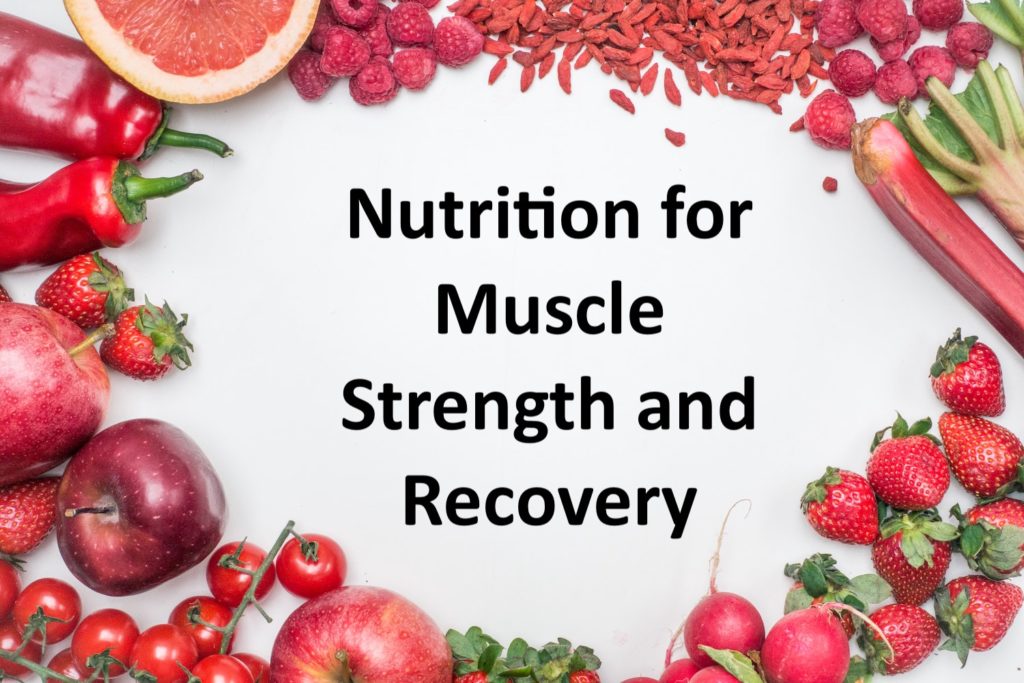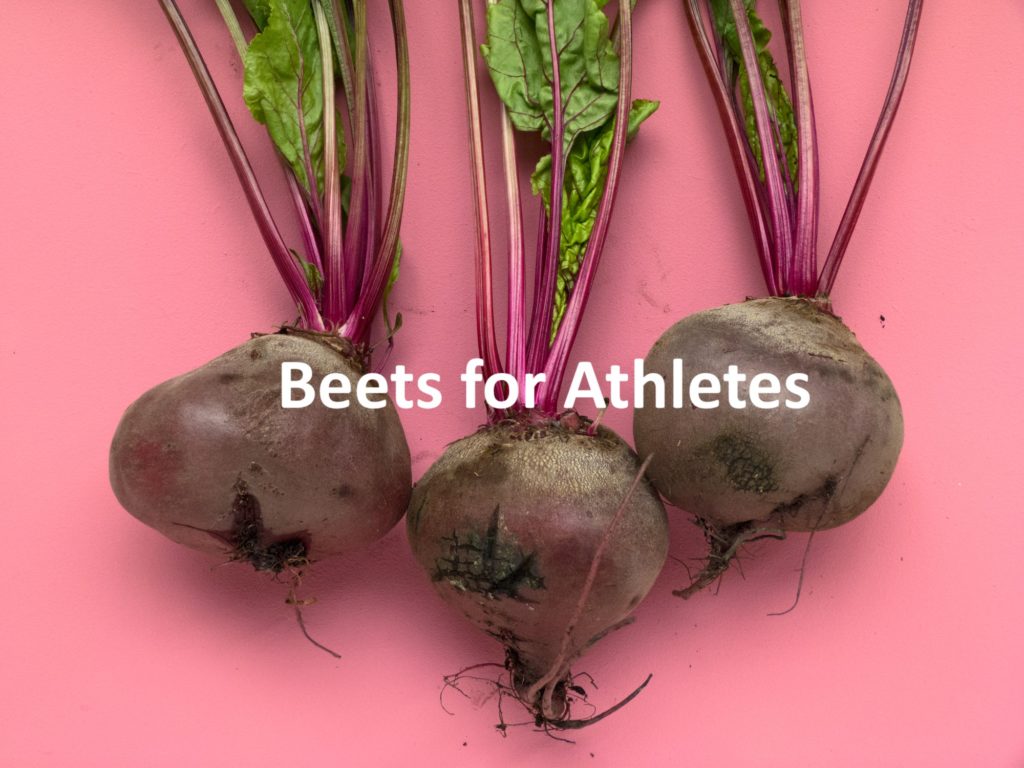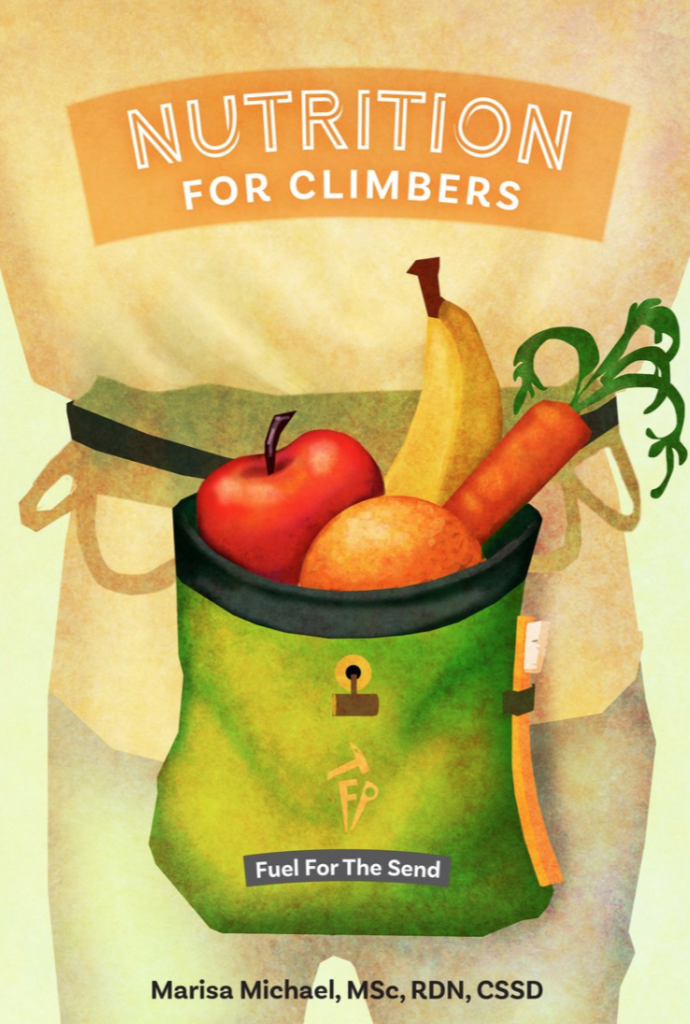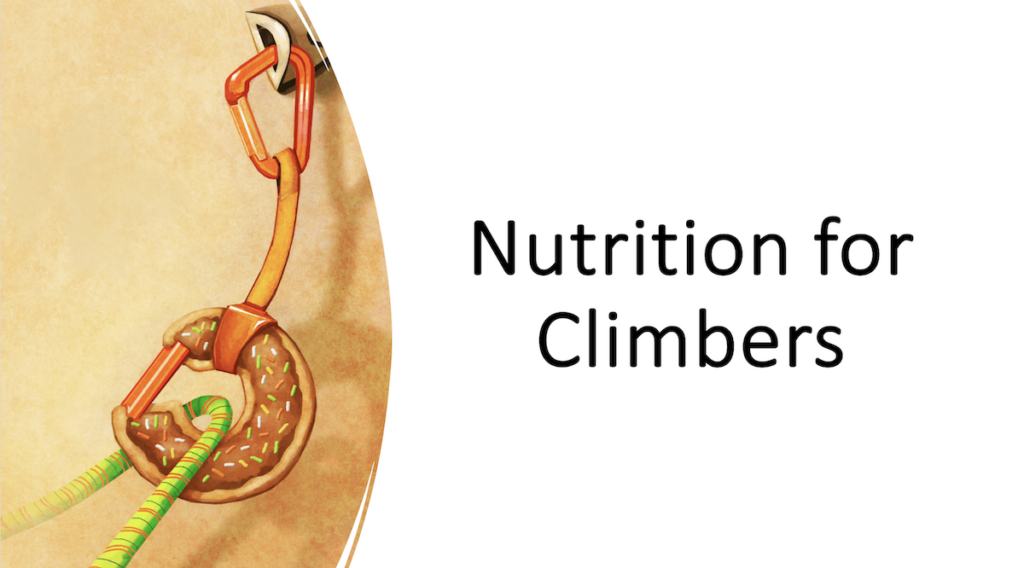This article was written by Brianna Bruinooge, RD, LD, CSSD
You can find her online at:
https://www.instagram.com/exercise.nutritionist/
https://www.nenutritionexercise.com/

What you eat on a day-to-day basis affects muscle strength and recovery. Twenty-four hours after a tough climbing day, you are still burning calories from your exercise. This post-exercise metabolism boost happens with strength training and high intensity interval training (HIIT) exercises. This is because your body is trying to return to its original state pre-exercise. During this time, it is so important to help your muscles recover.
Foods to eat on a regular basis to help with muscle recovery
Fruit: Pineapple, nectarines, kiwi, apples, oranges, clementines, grapes, pears, berries
Whole-grains: oats, 100% whole grain breads, brown rice
Starchy Veggies: potatoes, peas, corn
Non-starchy Veggies: greens, peppers, mushrooms, cabbage, kale, celery, carrots, brussels, broccoli, onions, beets and more!
Omega 3 fatty acids: fish, nuts, seeds, avocados, olives
Lean proteins: chicken or turkey breast, lean ground meat or plant based proteins like soy, beans, legumes and quinoa
By choosing these anti-inflammatory foods rather than highly processed foods, your body can recover faster. After exercising your body naturally has inflammation, but it is important to rest so that this inflammation remains acute (short-term), and not chronic (on-going).
Meal timing for muscle recovery
It is important to eat enough throughout the day, balanced meals and “mini meals”. Here are some examples of some “mini meal” high protein, fiber, and omega-3 fatty acid food combinations:
- Greek yogurt, berries, slivered almonds and pumpkin seeds
- Hard boiled eggs, grapes and carrot sticks
- Apple slices and celery sticks with peanut butter and cinnamon
- Quinoa, bean, craisins drizzled with balsamic vinegar and olive oil
- Carrots, crackers, and hummus
High nitrate foods for muscle recovery
Beets and other high-nitrate foods (such as arugula, radishes, celery, and spinach) can help improve blood flow of oxygen to your working muscles while on multi-pitch climbs or more endurance-style climbs. You can consume nitrates from concentrated beet juice or add beets to your day to day diet. Warning: it will probably turn your stool and urine red. (Beets are emphasized here because that’s the most common food studied in research settings for nitrates and athletic performance).

Carbohydrates for climbers
For more boulder-y style climbing and fast movements where we need quick energy because the intensity is high, our bodies are burning mostly carbohydrates. This means we need to eat carbohydrates before our climb! (The type, timing, and amount matters!)
We use an anaerobic (without oxygen) energy system that is short-lived and lactic acid will build up and cause muscle fatigue. This is when active rest, or overall rest, becomes important so that the lactic acid can clear. During this rest, oxygen becomes more available and the demand for energy is low; therefore, fat is the preferred fuel source. Both carb and fat are fuel sources during activity, it just depends on the climbing intensity and duration. For more intense and longer workouts, you will need more carbohydrates than a low-intensity exercise day.
Consuming enough calories, protein and carbs post-climb is important for recovery to replenish your glycogen stores (storage form of glucose) and repair and grow your muscle mass.
What you eat affects how long it takes your body to recover from the natural stressors of exercise. Eat enough, to fuel your body not only on climbing days, but rest days too. If you are poorly fueled, you will perform poorly and damage muscles instead of building strength. The right types, timing, and amounts of foods are highly individualized, which is why a sports dietitian can assist you in these areas.

Want to learn more? Check out our on-demand masterclass Nutrition for Climbers, or our book Nutrition for Climbers: Fuel for the Send.

~This is general information only and not nutrition advice. Always consult your healthcare provider before undergoing any diet or lifestyle change.

2 Replies to “Foods to promote muscle strength and recovery”
Comments are closed.